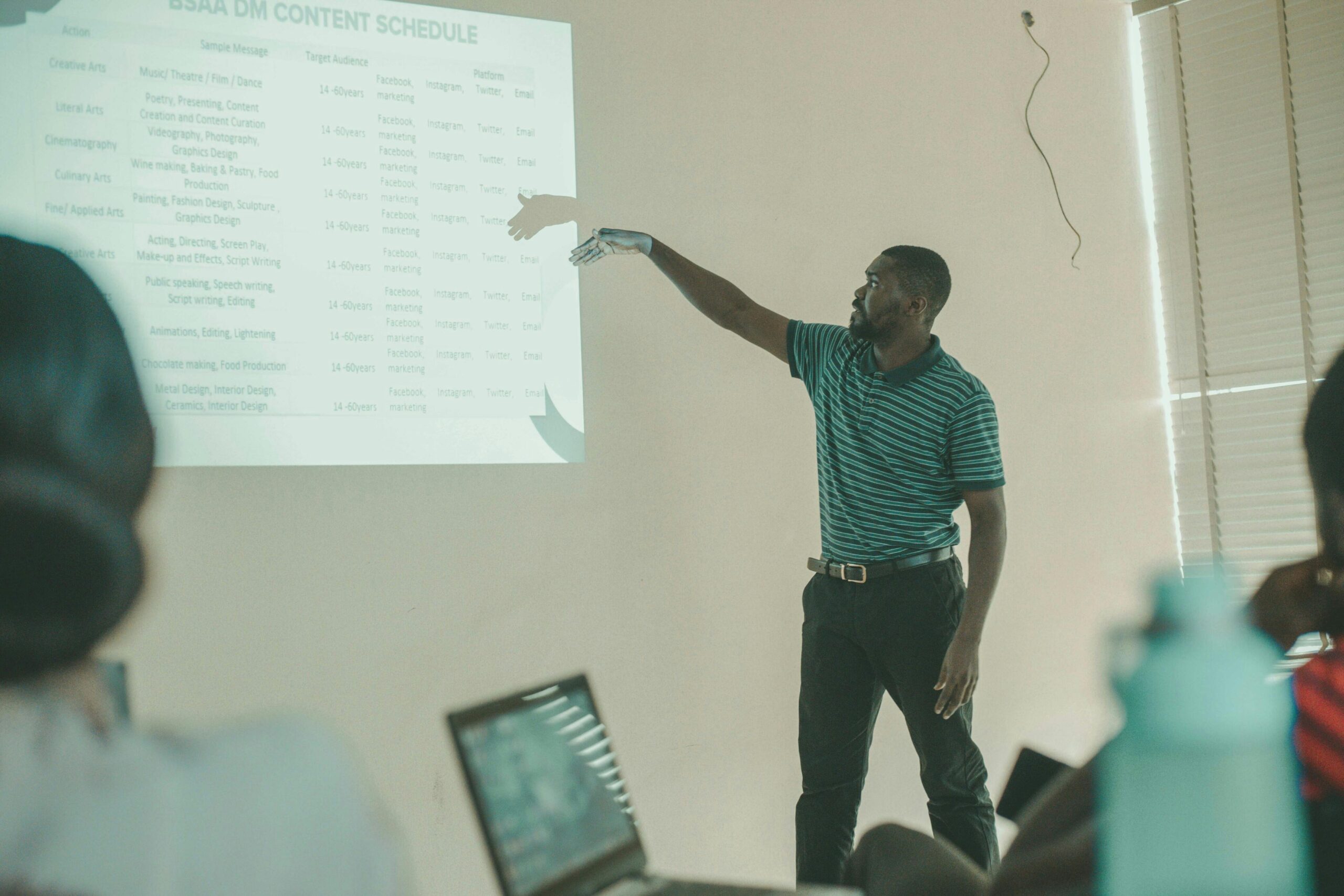What’s Covered:
What is Coursework? A Simple Explanation
Coursework might sound like a fancy term, but it’s just a part of your studies where you get to show what you’ve learned. It is all the tasks and assignments you need to complete as a way for your teachers to see how well you’re learning and applying the material from your classes.
Coursework can include a variety of activities:
- Essays: Writing a piece on a specific topic, showing your understanding and thoughts.
- Reports: Collecting and presenting information on a subject. This could be a lab report on subjects in sciences where experiments will be conducted.
- Research Papers: Doing in-depth research on a topic and writing about your findings
- Presentation: Sharing your research in a structured and visual format using slides and spoken delivery to communicate your ideas clearly to an audience.
Whether working alone or in groups, students do thorough research, combine information, and apply theoretical concepts to real-life situations. Receiving feedback from teachers also plays a crucial part in helping students improve their academic performance and polish their work. Remember! It is important to make the most of the extra marks from coursework because you can’t always rely on academic strengths alone to earn a perfect mark on an exam.

Why is Coursework Important?
There are countless reasons why coursework is important, but these are just a handful:
- Shows Your Understanding: It demonstrates how well you understand the subjects you’re studying. It’s not just about knowing facts; it’s about showing that you can apply what you’ve learned in different situations.
- Develops Skills: It helps you develop skills like researching, writing, critical thinking, time management and many more.
- Prepares You for Future Studies: It gets you ready for university-level work by building a strong foundation of knowledge and skills. This is especially important because at university, you’ll be expected to do a lot of independent study, research and write detailed papers. If you don’t get good at these things during your earlier studies, you might struggle later on. Many students have failed to graduate because they were unable to conduct adequate research and write properly.
- Helps Secure a Percentage of Your Final Grade: Coursework usually counts for a part of your final grade. Even if it’s just a small percentage, every point can matter. Sometimes, the difference between getting an A or a B can come down to those extra marks from coursework.
- Makes Learning Easier and More Engaging: Coursework often involves working with other students and doing hands-on projects. This can make learning more enjoyable and help you remember things better. When you work on projects or in groups, you get to discuss ideas and see things from different perspectives. This active way of learning is often more effective than just reading and memorizing for exams.
- Builds Confidence: Completing coursework successfully can boost your confidence. It shows you that you can tackle challenging tasks and achieve good results
- Provides Continuous Feedback: Coursework gives you ongoing feedback on your progress. This helps you understand what you’re doing well and where you need to improve before the final exams.
- Enhances Collaboration Skills: Since some of the tasks and assignments involve group work, it can teach you how to work together effectively with others. This is a valuable skill in both academic and professional settings.

What to Expect
Before starting coursework, there are several key aspects you can expect to encounter. Preparing for these will help you transition smoothly into your academic journey.
Timeframe
All modules will be taught in person by a qualified academic instructor. The IFY program is split into two 15-week semesters, with an exam at the end of the first semester (contributes to the final grade) and a final assessment at the end of the second semester. Coursework is usually assigned after the first semester exam and can be submitted at any time before the end of the academic year, even after the final assessment.
Course
You’ll receive a syllabus for each subject outlining the topics covered, required readings, assignments, exams, grading criteria, and projects. It is important that you carefully read this material. The following subjects have coursework availability: EAP/RCS, Biology, Business Studies, Chemistry, Computer Science, Economics, Global Studies, Physics, Sociology.
Assessment method and Criteria
The kind of assignment given is determined by the module being studied. There will be essays of between 1250 and 1500 words, reports expected to be 800-1000 words and even portfolio requirements. Coursework can be graded based on its originality, analysis, presentation, and adherence to guidelines. View the syllabus for each module in our resource center to learn more about how coursework is graded and what assignments is expected of you.
It is important to note that
In the NCUK International Foundation Year Program (IFY), the weight of coursework in the overall assessment varies across modules. Certain modules such as Mathematics may not include any coursework component while others like Art & Design contain 100% coursework with no exam component. View the NCUK qualifications page for more information or click here to download the pdf file. Your pathway selection affects the combination of modules you will study to fit your degree destination.

Challenges Students Face with IFY Coursework
1. Not Knowing What Coursework Is
Lack of Familiarity: Many students entering the International Foundation Year (IFY) may have never encountered coursework before. This unfamiliarity can leave them clueless about where to begin and what is expected, causing significant stress and confusion. Without a clear understanding of coursework, students might feel overwhelmed by the lack of information and direction on how to proceed with their assignments and projects.
2. Language barriers
Understanding and Expressing: For many international students, English is not their first language. This can make understanding lectures, reading academic texts, and writing assignments challenging. If students are unable to discover NCUK study centers that provide IFY in their native country, they may be required to take the program in another nation or city where the program is available. In contrast to individuals studying locally, they would need to already have good English skills.
3. Understanding Coursework Requirements
Clarity: Sometimes, the instructions for assignments can be unclear or misunderstood, leading to confusion about what is expected. Understanding and adhering to principles of academic honesty, such as avoiding plagiarism, can be a challenge.
4. Research Skills
Finding Resources: Knowing where and how to find reliable academic resources can be difficult. Assessing the credibility and relevance of sources is a crucial skill that needs to be developed.
5. Academic Workload
Volume of Work: The amount of reading, writing, and research required can be overwhelming. Complexity of Tasks: Some assignments may be more challenging than students are used to, requiring a higher level of critical thinking and analysis.
6. Time Management
Juggling coursework with other responsibilities can be tough. Deadlines: Keeping track of multiple assignments and meeting deadlines requires good organizational skills.
7. Technological Challenges
Access to Technology: Students must have access to technology for coursework. All works are done and some submitted digitally requiring reliable internet and functional laptop. Digital Literacy: Some students may struggle with using various online platforms and tools required for their coursework. Limited technology access can lead to delayed submissions, missing assignments, poor grades, and increased stress.
8. Stress and Mental Health
Pressure to Perform: The pressure to achieve high grades can cause significant stress and for those studying outside of their native country, being far from home and dealing with the high demands of work can lead to feelings of loneliness and anxiety.

Addressing These Challenges
- Do Your Research: Start by familiarizing yourself with what coursework involves. Read up on the types of assignments, expectations, and common practices
- Language Support: Consider taking extra English language learning courses and seek help from language support services.
- Time Management Skills: Use planners and scheduling tools to organize study time and deadlines.
- Academic Support: Seek help from tutors, academic advisors, and even your peers for assistance
- Research Skills: Take advantage of library workshops, online tutorials, articles and even blogs to understand how to find credible resources and maintain academic integrity (avoiding plagiarism).
- Clarification: Don’t hesitate to ask teachers for clarification on assignments and expectations.
- Mental Health Support: Access counseling services and practice self-care routines.
- Technology Access: Ensure you have access to essential digital necessities for NCUK International Foundation year (IFY) and seek help if needed.
- Utilize Our Resources: Explore our detailed guides on coursework for various subjects. These guides will help you understand the requirements and structure of different types of coursework. Check out the previous coursework of A* students available on our page. Use these samples as a guide for your own work to see what excellence looks like.
- Seek Help from our Experts: Reach out to us for any questions or talk to us about your concerns, and we’ll provide personalized advice and support and if you find yourself in a panic last-minute situation, don’t worry. You can get an expert to help write your coursework, ensuring you meet deadlines and maintain quality.

Tips for Success
- Thorough Research– Use credible sources such as academic journals, books, and online databases. Take advantage of the resources provided by your institution, such as the library. Organize your research materials and notes systematically to make the writing process more efficient. Always cite your sources properly to AVOID plagiarism using the Harvard referencing system. It is widely accepted and regarded as the best method. “Cite Them Right” by Richard pears and Graham shields is a popular guide that covers Harvard referencing comprehensively.
- Clear Understanding of Assessment Criteria– Familiarize yourself with the assessment criteria for each assignment. Understand what is expected in terms of content, structure, and formatting. Pay attention to the weight of different components, such as tests, essays, case studies and final assessments. Never disregard any topic or aspect as irrelevant.
- Stay Organized– Keep your notes, assignments, and materials neatly organized. This makes it easier to find what you need when working on your coursework.
- Plan Your Time– Make a schedule to balance your study time, assignments, and breaks. Using a calendar or planner can help you keep track of deadlines.
- Ask for Help– If you’re stuck, don’t hesitate to ask your teachers or classmates for help. It’s better to ask questions than to struggle alone.
- Practice Regularly– Regularly review your notes and practice what you’ve learned. This makes it easier to remember and understand the material. This doesn’t just help you understand the material better and improve your memory—it’s especially crucial when it comes to your presentations in the RCS module. Presentation performance is heavily influenced by practice. The more you practice, the more familiar you become with your content, and the more confident you’ll feel when it’s time to present. Even if you experience stage fright, forget your words, or feel nervous during your presentation, regular practice can act like a safety net. When you’ve practiced enough, your brain becomes like a “broken record,” automatically recalling information and allowing you to continue speaking even under pressure. Your body knows what to say, and the words will flow, even if nerves try to get in the way. This kind of muscle memory only comes from consistent practice!
- Safeguarding and Backing Up Your Data– Protecting your coursework data is essential to avoid loss from technical issues or accidents. Regularly back up your work using both physical devices (external drives, USBs) and cloud storage (Google Drive, Dropbox, iCloud, OneDrive). Ensure your software is reliable, updated, and has auto-save enabled. Also, protect against malware and viruses. Many students have experienced losing their work due to failing to back it up, forcing them to start over—a process that can be incredibly stressful, frustrating, and overwhelming. While some managed to resubmit in time, others didn’t, and a few gave up halfway, losing all their points. You don’t want to find yourself in that situation.
- Take Care of Yourself– Don’t forget to rest and relax. Taking care of your health and well-being helps you stay focused and do your best.





Leave a Reply